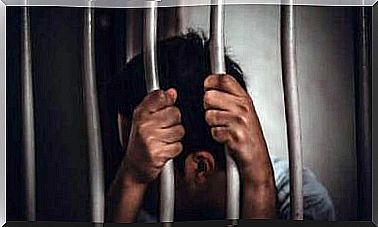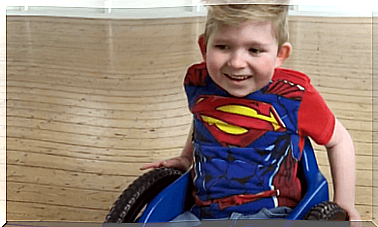Psychological Violence: Like Drops Of Water On A Rock

When we think of the word “abuse”, the mental picture of physical beating automatically appears . However, physical violence is only one type of violence. In this article we will talk about another form of violence that can exist simultaneously or alone. We’re talking about psychological violence.
Manipulation, downgrading and insults are more common than physical blows. However, they are not accused or talked about. Why? The reasons are varied. Some of the causes are the same as those of physical violence, such as the victim’s shame. And others are exclusive to physical violence, such as the difficulty of assessing them due to lack of physical marks.
Psychological violence inside and outside the home
Psychological violence can take place especially at home, but also at work, in the media and in society in general. In many cases, without us even noticing it, without being able to appreciate the discretion of it. But the same cannot be said for the damage it causes.
Psychological aggressions are usually perpetuated over time, and they act as drops of water on a rock. Constant, continuous, they cause erosion that is difficult to repair. Erosion that is difficult to appreciate if we only observe it at the moment.
Something similar happens with psychological violence. The aggressor gradually creates fear and addiction in the other person’s mind.

While this type of aggression can take place in any environment, it is most common within the core of the family and above all within a relationship. One person makes the other feel worthless. They ridicule them in front of others, insult, judge or threaten them.
The victim slowly loses the will and courage to go out, to go to regular places often, to have friendships, to meet their parents and family members, etc. From this type of violence, addiction is born. The victim feels they are worthless. Therefore, they are dependent on their partner for everything.
Psychological violence in children
It is generally believed that by applying excessive discipline to children, we help to make them strong and disciplined adults. But this is not the case. This type of rigorous training provides only frustrated children, adolescents and adults, who are full of complexes and very low self-esteem.
Parents who attack their children mentally do not realize that they are forging a behavior that can turn on the children as they get older. Especially in adolescence, which is already a complicated time for them.
Why is psychological violence not reported?
In order to answer this question, we must remember various factors and take into account special circumstances. However, there are some common or frequent patterns in this type of situation.
First of all, it is not reported because many times the victim is not aware of the violence. The attacker has been so “precise and calculated” that it is not perceived as something bad. Instead, it is seen as something mundane, normal and even expected. The typical “he does it because he loves me” is very common.
On the other hand, if the victim has noticed this behavior in the person, it is something that is very difficult to prove (as opposed to physical strokes). In most cases, the victim’s family and friends notice changes in the behavior or attitude of both parties. Furthermore, some of the verbal aggressions may occur in the context of a social gathering.

At the same time, psychological violence due to fear is not reported. At times, the victim has to return home and live with the abuser for fear that something will happen to their children or some of their family members.
Finally, the lack of commitment from the authorities and the lack of legislation in many countries on domestic violence, both in physical and mental forms, make it very difficult for the victim to report the situation.
What can you do to escape the abuse?
In order for the victim to be able to change their situation, it is a good alternative to contact people who have experienced a similar situation. There are organizations and foundations that can help them. Keep some distance, as much as possible, from the abuser so that the problem does not have tragic or irreparable consequences.
Also, therapy and talking to the people closest to you may be what the victim needs to get over it. With the support of their loved ones and the lessons of what they have lived through, it becomes easier to move forward. Let us not forget that by strengthening the self-confidence of the people we love, we are helping to make them stronger against this type of aggression.









